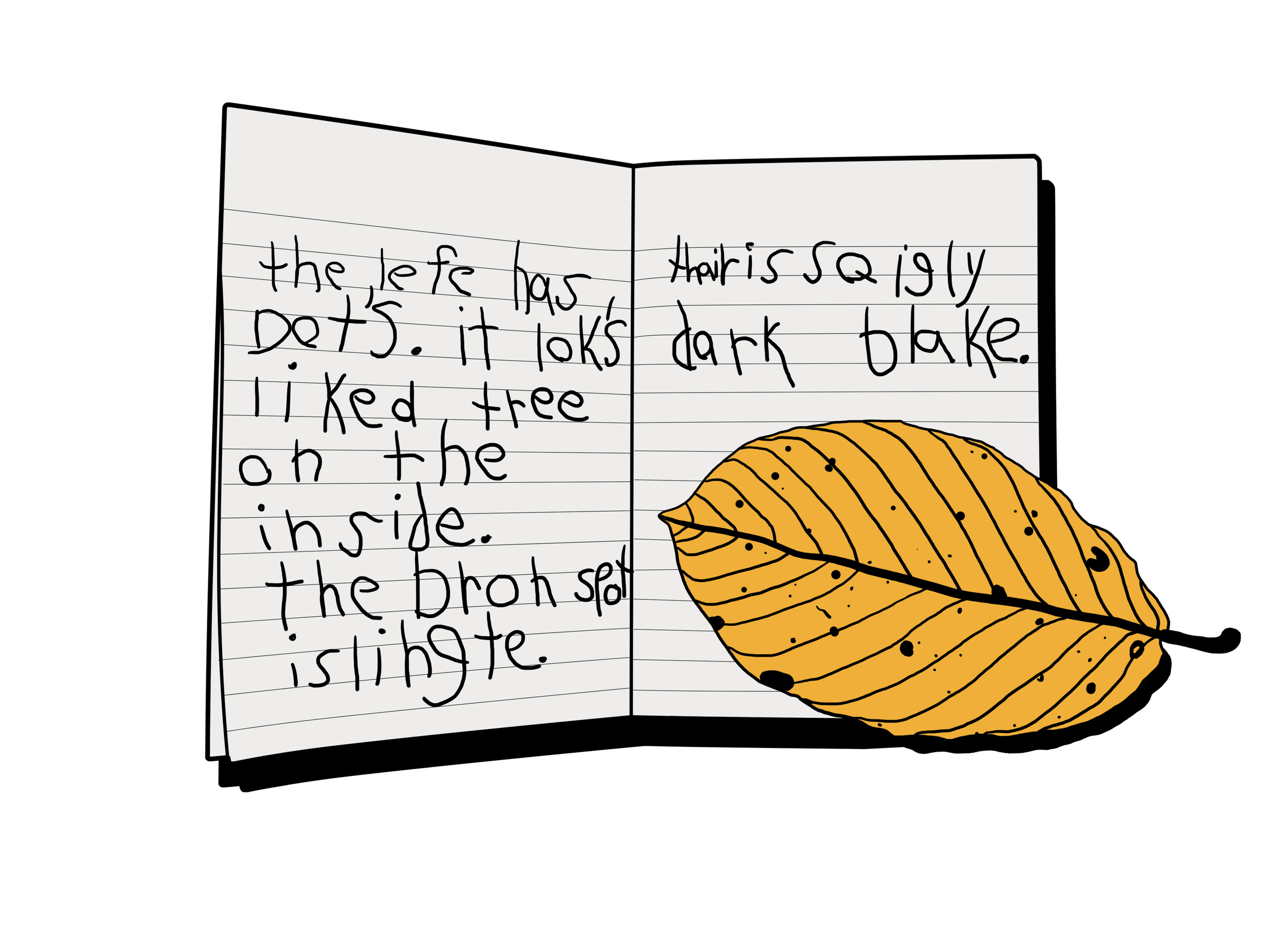Teaching & Learning
Creative play allows children to develop a mindset that promotes problem solving, critical thinking & collaboration.
Approaching learning in this way creates endless opportunities to gain self confidence, problem solving skills & to think critically when facing new challenges.
Our programs are a safe place to ask questions, be curious and make mistakes. Working with children in this way allows them to make discoveries and share experiences not often found in other more traditional spaces for todays children.
Child Led
Children guide our learning everyday, having an equal parts in the teaching & learning process as out instructors.
Place Based
Children come to understand their place in the forest, community and larger world through play, exploration and self discovery.
Experiential Learning
Children learn to stay curious, solve problems and to never stop exploring while learning through play.
Emergent Curriculum
Children learn with what is happening around them, through inquiry and discussion as they explore a great variety of subjects.
Inquiry Based
We hold space for children’s interests, curiosity and wonder + their never ending list questions, both big and small.
100% Outdoor
Children learn to embrace the “bad” weather as much as the “good”. Finding joy in a storm’s wind as much as a calm sunny day.
When children engage with something that brings them joy, the learning that takes place is genuine & endless.
Often children are unaware they are practicing new skills or improving their reading, language and math through creative play, exploration and social interactions. Our instructors act to support + model the joy of learning new subject or skill children discover.
Children will share that they are “not so good at writing” and fill entire pages of a journal describing their experiences and observations during Forest School. Others might announce “I don’t like math at all” and then use addition or division while playing a game.
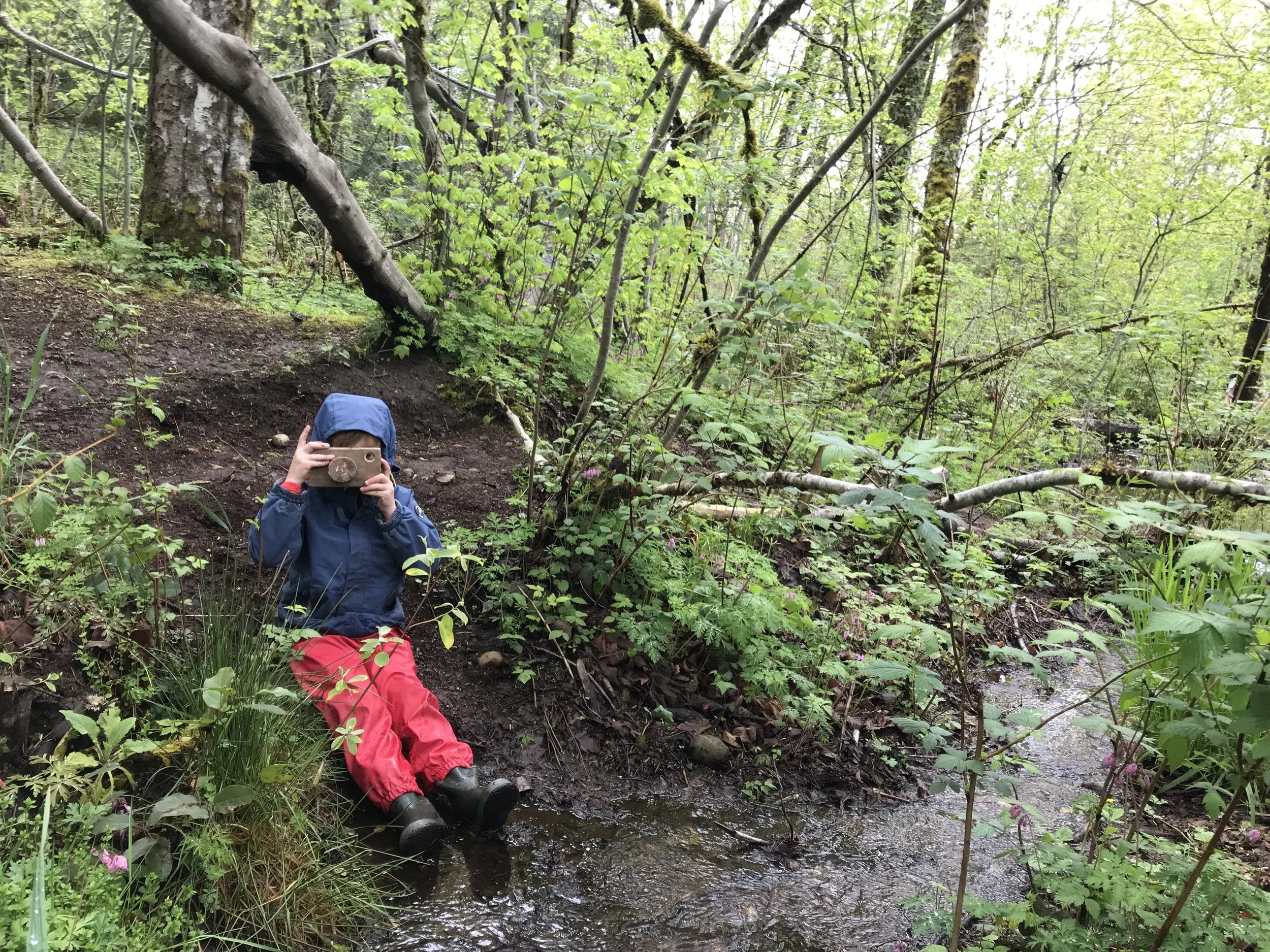




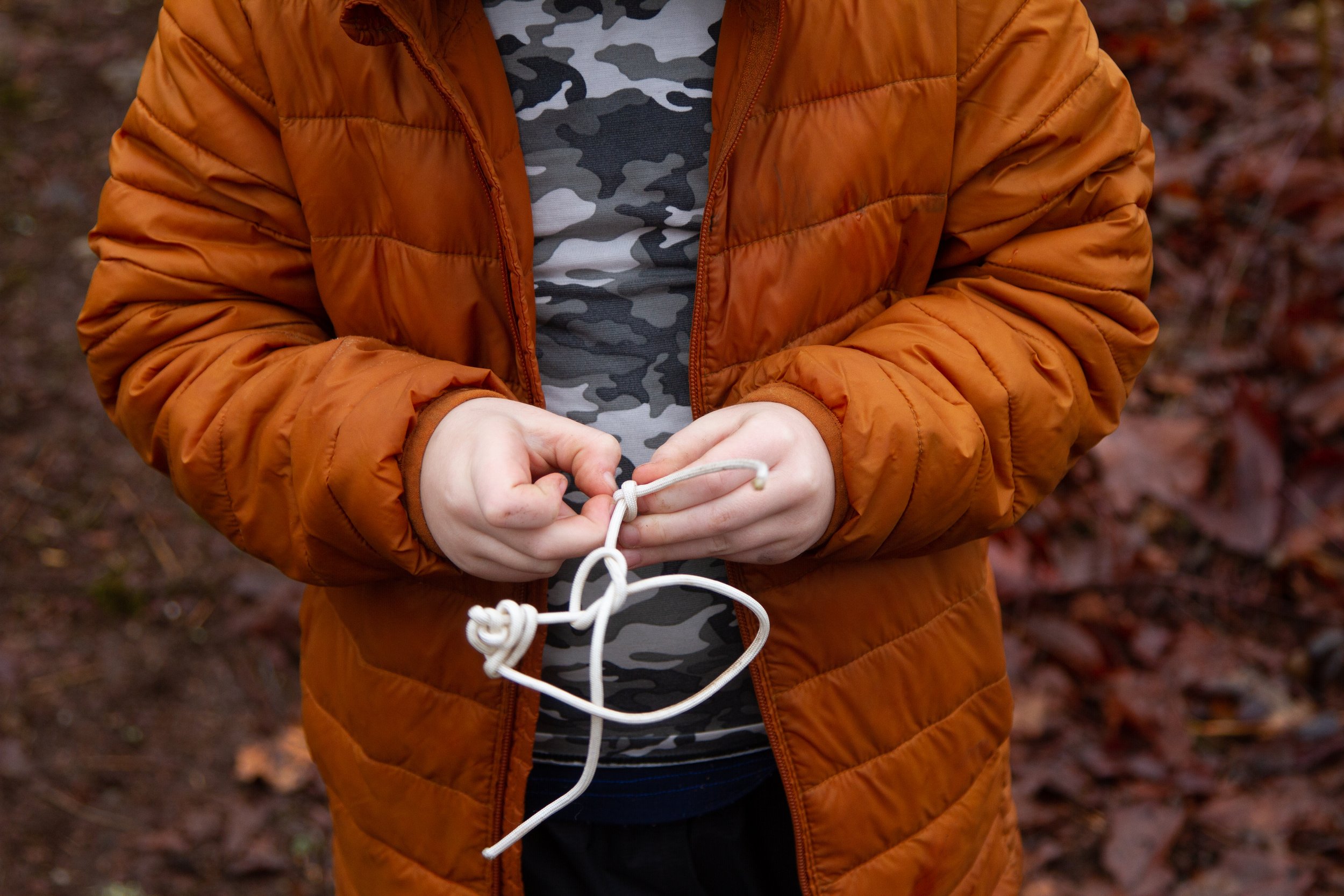
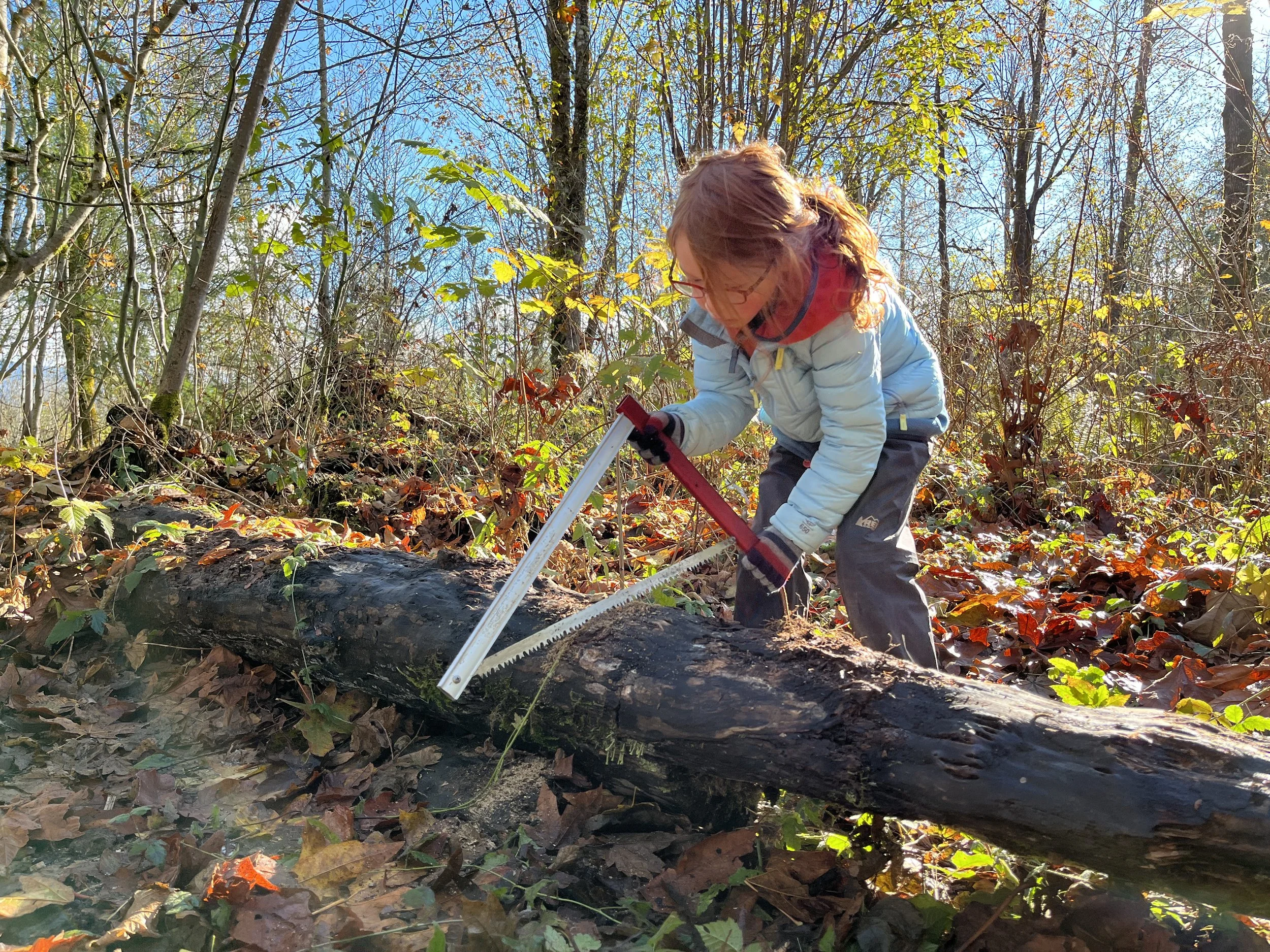


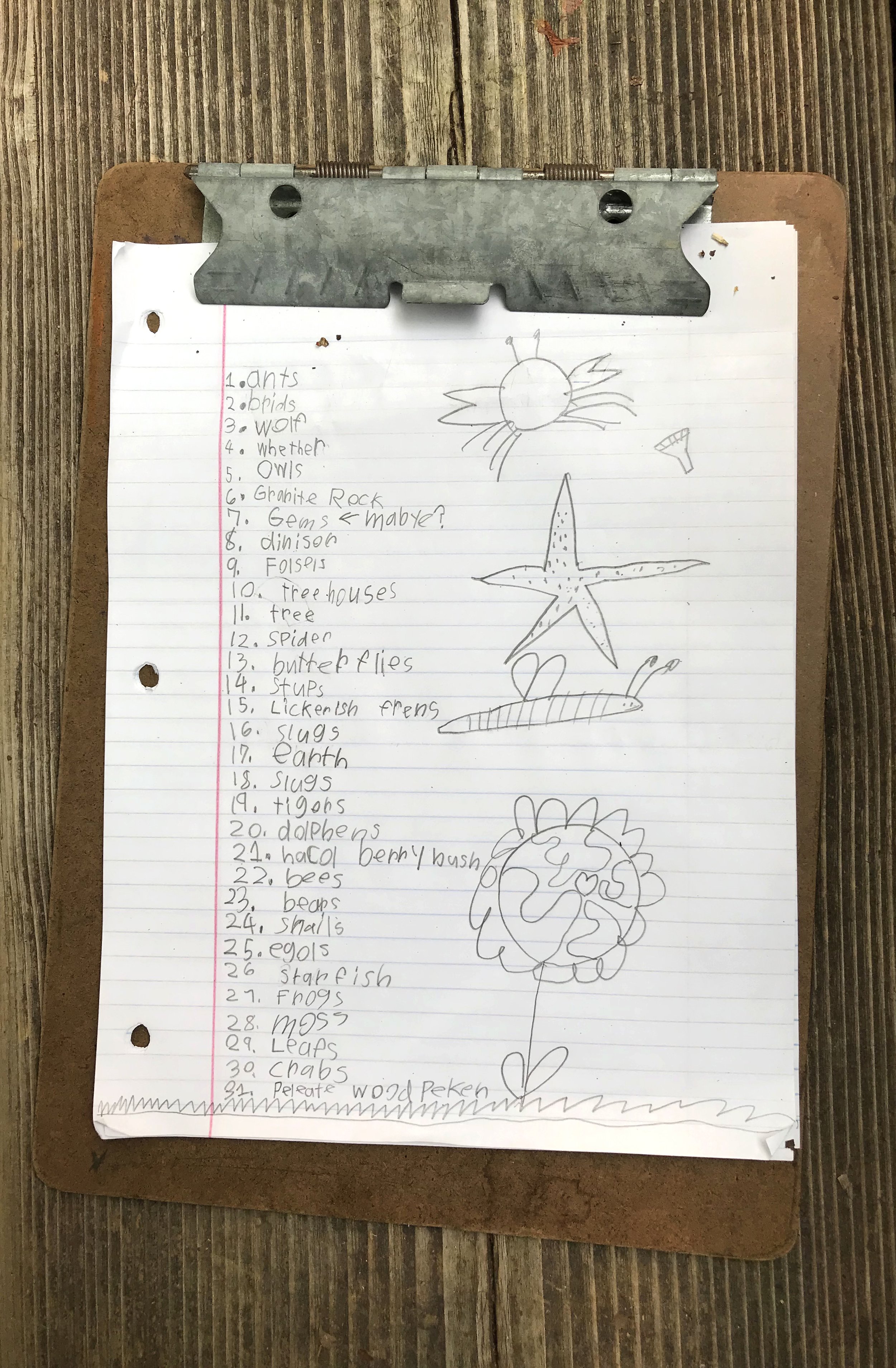
Borrowing From Those Before Us
We look to others working with children who are using alternative approaches to early learning. Borrowing elements from a great variety approaches and programs, we can adapt and apply new ways to teaching to support each child’s specific needs.
Reggio Emilia: Student centered - Experiential learning - Learning is self guided
Waldorf Steiner: Small class sizes - Promote creativity - Learn practical skills
Dr. Montessori: Mixed ages - No grades or testing - Support eagerness to learn


